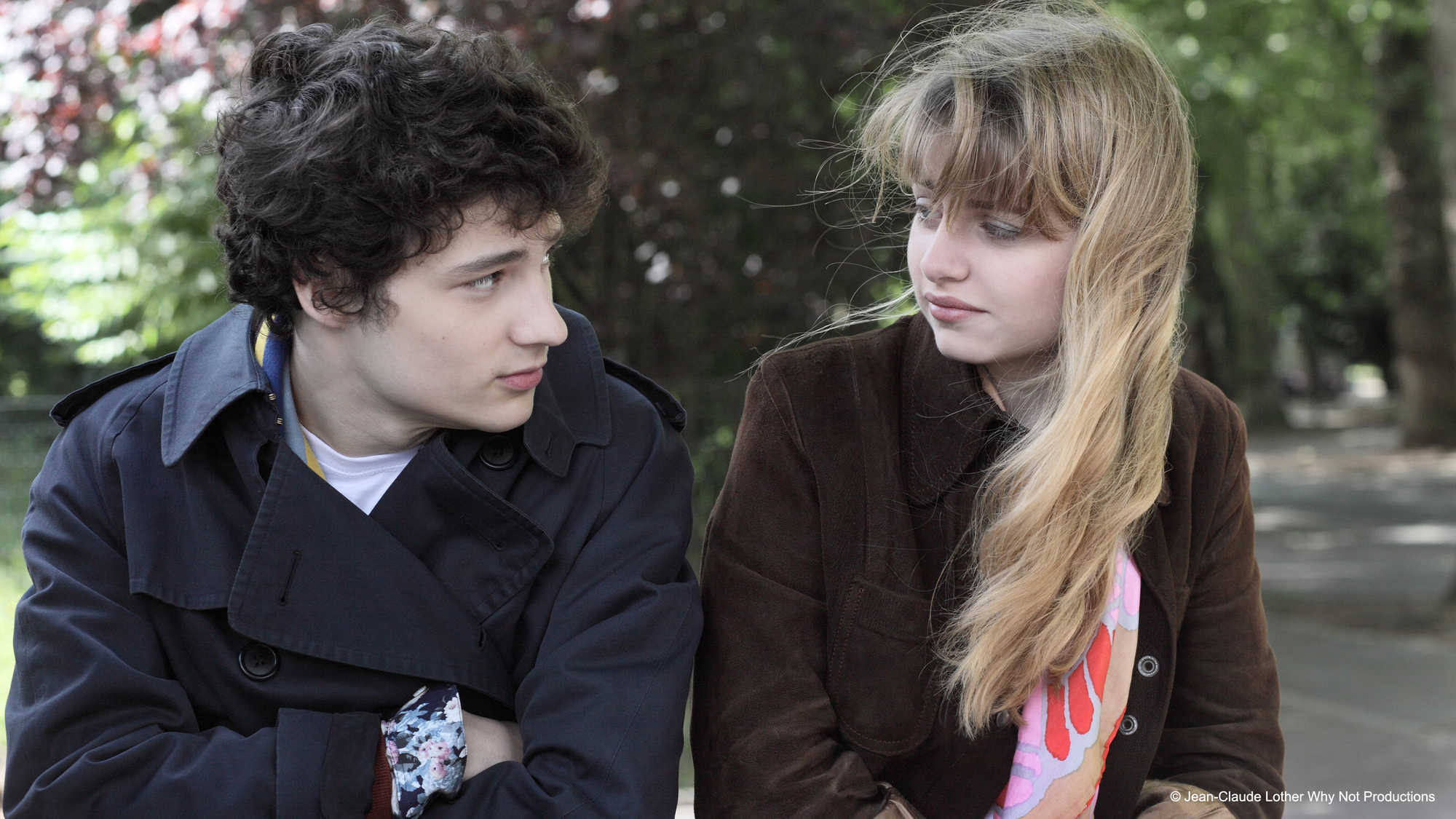MY GOLDEN DAYS (Trois souvenirs de ma jeunelle)
Magnolia Pictures
Reviewed by: Harvey Karten for Shockya, d-based on Rotten Tomatoes
Grade: B
Director: Arnaud Desplechin
Written by: Arnaud Desplechin, Julie Peyr
Cast: Quentin Dolmaire, Lou Roy-Lecollinet, Mathieu Amalric, Dinara Droukarova, Cécile Garcia Fogel
Screened at: Dolby 24, NYC, 3/2/16
Opens: March 18, 2016
What was the happiest time of your life? For many people, it’s youth. Why? Young people who grow up in good homes are physically vigorous, with emotions that run high, passions unfurl. There are heartbreaks as well, and if you remember your younger days, you lived with the pain of lost loves, just like the title character in Sigmund Romberg’s operetta, “The Student Prince.” Romberg’s story deals with a prince from Heidelberg, Karl Franz, who went to a university in Paris and fell in love with one Kathie. But when summoned back to his country after his father died, he is obligated to become king and marry a princess. His heart is torn, but Kathie, wisely, pretends that she is now engaged and therefore unavailable. In the song “Golden Days,” Karl notes that “Golden days in the sunshine of our happy youth/ Golden days, full of innocence and full of truth/ In our hearts we remember them all else above/ Golden days, days of youth and love.” Similarly, in “My Golden Days,” known by its French title “Trois souvenirs de ma jeunelle” (three memories of my youth), the principal character, a student of anthropology falls in love, and must travel frequently. Like so many relationships that require separations, love eventually cools. Arnaud Desplechin may have been inspired by the Romberg piece. Though there is no royalty, there is love, there are travels, there are break-ups.
Arnaud Desplechin, who directs and co-wrote “My Golden Days,” is best known here for “My Sex Life..or How I Got into an Argument,” which deals with Paul Dédalus at a crossroads in his life. He has to make several decisions; should he complete his doctorate, does he want to become a full professor, does he really love his long-standing girlfriend, or should he re-start with one of his other lovers? His current film is a continuation but no knowledge of the 1996 work is needed to appreciate this deep exploration of Paul’s youth
Paul Dédalus (Mathieu Amalric), an anthropologist working in Tajikstan, reminisces about his past, an early childhood that is unhappy because of the near insanity of his mother, Jeanne Dédalus (Cécile Garcia-Fogel) and the depression of his father, Abel (Olivier Rabourdin). The eleven-year-old boy (Quentin Dolmaire) moves out of his home to live with his great-aunt(François Lebrun). After some high school adventures with his best friend, Marc Zylberberg (Elyot Milshtein) involving Paul’s helping to get Russian Jews out of the country, he is questioned by French authorities (André Dussollier) who suspect Paul of being a spy for Russia.
The principal segment finds Paul forming an attachment to a schoolmate, Esther (Roy-Lecollinet), at which time he studies for a degree in anthropology while living, with little money, on the kindness of others. He does associate with a professor (Ève Doé-Bruce), who had traveled to France from her native Benin. Paul spends six years of his life on an off-and-on liaison with Esther (Lou Roy-Lecollinet), who, having spent her own youthful years with full knowledge of her effect on “guys” now finds someone who sweeps her off her feet.
Like Karl Franz of Romberg’s principal character, Paul must travel from home for months at a time, though upon returning he indulges in a torrid romance. The relationship is fairly non-committal, but years after the bond collapses, the mature Paul cannot forgive his friend Jean-Pierre (Pierre Andrau) for stealing her away not long after Paul’s latest trip to some former Soviet republics.
It’s not that Paul’s life features many points that make it more exciting than yours. Aside from his helping one particular refusenik, or Russian Jew, to escape from the country by giving him his own passport, his romantic life is not much unlike yours, one suspect. But through the skill of director Arnaud Desplechin and the maturity of his script which he co-wrote with Julie Peyr, we in the audience are touched by the genuine feelings of a middle-aged man who has never forgotten his golden days for better or worse and will remain affected by them just as the members of Desplechin’s audience.
Rated R. 123 minutes. © Harvey Karten, Member, New York Film Critics Online
Story – B+
Acting – B
Technical – B
Overall – B

